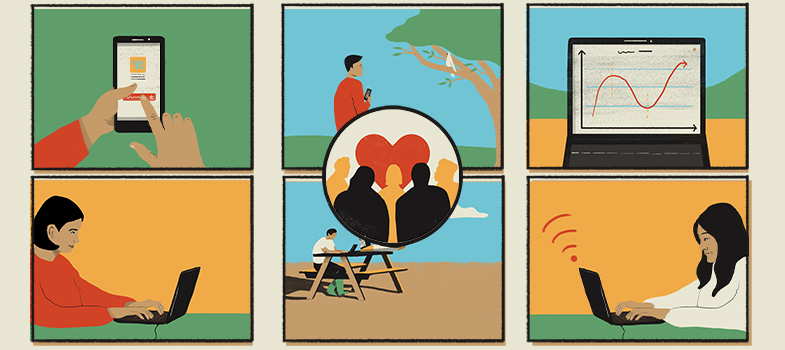Digital Ethics
1. Communicating responsibly
When working in shared online spaces, it is important that you:
- treat others with courtesy and respect
- safeguard confidentiality and personal security
- understand and respect copyright
- are careful about posting any information that could pose a security risk such as your detailed location or personal data such as your date of birth.
Treat others with the same courtesy and respect as you would in a face-to-face conversation. It is not a problem to be controversial and outspoken with your ideas but never be offensive or hurtful. Remember that when you post something online it could be out there forever, even if you delete it, as people copy and distribute information so make sure you think carefully before posting something.
Don’t write or share anything that is:
- defamatory, obscene, discriminatory, illegal, incites hatred or could damage the reputation of others
- confidential or infringes another person’s privacy; for example, you should not share someone’s contact details without their permission
- sent to you privately and not intended to be shared with others
- likely to make someone feel bullied or harassed
- malicious or potentially harmful to others.
Online messages are sometimes misunderstood because the other person’s facial expression can’t be seen. It can help to use emoticons to show you are smiling :), surprised 8-o, sad :(, embarrassed :-I and so on.
When you reply to a message you can set the scene by quoting part of the original message. Make it easy for readers to see what you have done by putting quoted text between double angle brackets, << and >>.
Don’t write in capital letters because it can look as though you are SHOUTING and it is harder to read.
